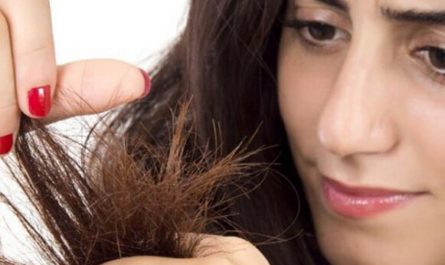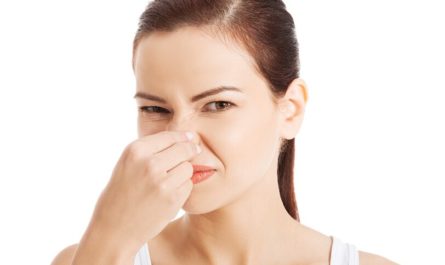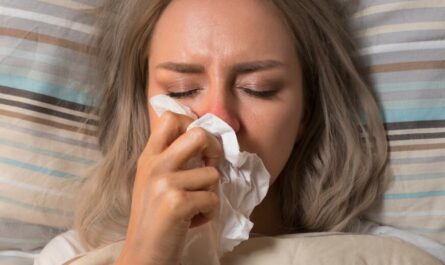Escherichia coli, commonly known as E. coli, is a type of bacteria found in the intestines of humans and animals. While most E. coli are harmless and play a beneficial role in the digestive process. However, In some cases, E. coli bacteria can enter the urinary tract and cause an infection. In this article, we’ll dive into what E. coli in urine is, its causes, symptoms, diagnosis, treatment, and prevention.
E. Coli in Urine – What Does It Mean?
E. Coli (Escherichia coli) is a type of bacteria commonly found in the human digestive tract. While most strains of E. Coli are harmless and even beneficial, certain strains can cause infections.
When E. coli is found in urine, it usually indicates a urinary tract infection (UTI). UTIs are common bacterial infections that affect the urinary system. The urinary system includes the kidneys, bladder, ureters, and urethra.
UTIs are typically caused by bacteria entering the urethra and traveling up into the bladder. Women are more prone to UTIs than men due to their shorter urethra, which allows bacteria to reach the bladder more easily.
The symptoms of UTIs can vary but commonly include a frequent urge to urinate, a burning sensation during urination, cloudy or dark urine, and lower abdominal pain. If left untreated, UTIs can lead to more serious complications such as kidney infections.
UTIs are diagnosed through a urine sample, which is analyzed for the presence of bacteria and white blood cells. Treatment typically involves a course of antibiotics to kill the bacteria causing the infection.
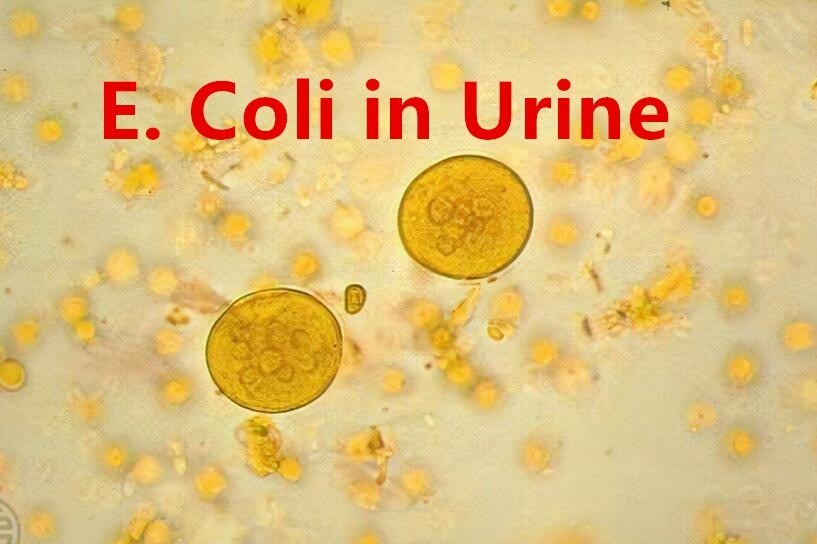
Symptoms of E. coli in the urine
Symptoms of E. coli infection in the urine, also known as a urinary tract infection (UTI) caused by E. coli, can include:
- Frequent Urination: You may feel the need to urinate more often than usual.
- Urgency: There can be a strong and sudden urge to urinate.
- Burning Sensation: A burning or painful sensation when urinating, often referred to as dysuria.
- Cloudy Urine: Urine may appear cloudy or murky.
- Bloody Urine: Hematuria, which is blood in the urine, can occur. This can make the urine appear pink, red, or brown.
- Strong-Smelling Urine: Urine may have a foul or strong odor.
- Lower Abdominal Pain or Discomfort: Some individuals with a UTI may experience discomfort or mild pain in the lower abdomen or pelvic area.
- Fatigue: Feeling tired or generally unwell can sometimes accompany a UTI, especially if the infection is more widespread.
Diagnosis of E. Coli in Urine
To diagnose E. Coli in urine, a healthcare professional will typically perform a urine culture. This involves collecting a urine sample and sending it to a laboratory for analysis. The culture helps identify the specific bacteria causing the infection and determines the most effective antibiotics for treatment.
In some cases, additional diagnostic tests may be necessary to identify underlying urinary tract abnormalities contributing to recurrent E. Coli infections. These tests may include imaging studies, cystoscopy, or urodynamic tests.
Interpreting Urine Culture Test Results
A urine culture test is vital for detecting and identifying the organism responsible for your UTI. Typically, it takes a couple of days to receive the results.
Normal Results:
- No bacteria or other organisms grow in the urine culture, indicating a negative test.
Abnormal Results:
- Bacteria grow in the urine culture within the testing time, indicating a positive test.
- If the test reveals more than 100,000 bacteria per milliliter of urine, it usually indicates an infection.
- If bacteria are present but the count ranges from 100 to 100,000, this could be due to infection or sample contamination, necessitating further testing.
- A count of 100 or less indicates that an infection is unlikely.
- The presence of different types of bacteria in a culture is often indicative of contamination, prompting the need for a repeat culture for confirmation.
- A significantly higher count of bacteria may require additional testing, such as a susceptibility test to determine the most suitable antimicrobial treatment.
Common Causes of E. Coli in Urine
Some common causes of E. coli in urine include:
1. Poor hygiene
Poor hygiene practices can increase the risk of E. coli entering the urinary tract. This can occur when wiping from back to front after using the bathroom, not washing hands thoroughly, or not showering regularly.
2. Sexual activity
Sexual activity can introduce bacteria into the urinary tract and increase the risk of UTIs. Women are particularly susceptible to UTIs after sexual activity. Because bacteria can be introduced into the urinary tract during intercourse.
3. Urinary catheters
Catheters are tubes inserted into the bladder to drain urine when a person cannot urinate on their own.
Catheters can provide a pathway for bacteria to enter the urinary tract and cause infections, including UTIs. People who use catheters are at a higher risk of developing UTIs and should take extra care to maintain good hygiene practices.
4. Diabetes
People with diabetes are more susceptible to UTIs, including those caused by E. coli. High blood sugar levels can damage the nerves that control the bladder. This will lead to incomplete bladder emptying and an increased risk of UTIs.
5. Bowel conditions
Bowel conditions, such as inflammatory bowel disease (IBD) or constipation, can increase the risk of E. coli entering the urinary tract. In some cases, bacteria from the bowel can migrate to the urinary tract and cause infections.
6. Kidney stones
Kidney stones can cause blockages in the urinary tract, leading to infections, including those caused by E. coli. People with a history of kidney stones may be at a higher risk of developing UTIs.
7. Prostate problems
Men with prostate problems, such as an enlarged prostate, may be at a higher risk of developing UTIs caused by E. coli. An enlarged prostate can make it difficult to empty the bladder, increasing the risk of infections.
8. Immunodeficiency
People with weakened immune systems, such as those with HIV/AIDS or undergoing chemotherapy, may be more susceptible to UTIs caused by E. coli.
8. Antibiotic resistance
Overuse or misuse of antibiotics can lead to the development of antibiotic-resistant strains of E. coli. In addition, People who have used antibiotics frequently may be at a higher risk of developing infections.
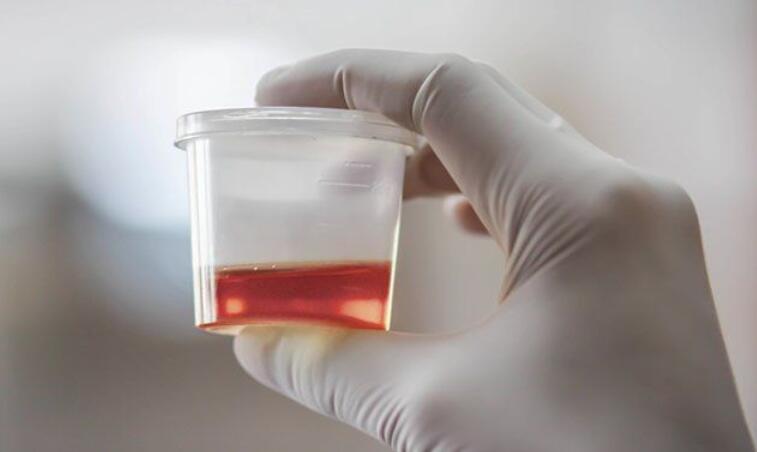
Home Remedies for E. Coli in Urine
1. Drink more water
Drinking plenty of water can help cleanse the bladder and urethra. This effectively reduces the amount of E. coli in the urine.
In addition, drinking plenty of water can help dilute urine and relieve burning sensations. But avoid alcohol, coffee, and certain beverages that contain citrus juices, which can irritate the bladder.
2. Maintain Proper Hygiene
- Handwashing: The simplest yet most effective way to prevent E. Coli infection is regular handwashing with soap and water. Ensure you wash your hands before eating, after using the restroom, and after handling raw meat.
- Food Safety: Practice safe food handling and cooking techniques. Thoroughly cook meat and poultry to kill any E. Coli present. Avoid consuming raw or undercooked foods, such as eggs or unpasteurized milk.
- Sanitize Surfaces: Keep your kitchen and food preparation surfaces clean and disinfected to prevent cross-contamination.
3. Drink cranberry juice
Cranberry juice is rich in antioxidants and has anti-inflammatory properties. This can help fight infections and improve E. Coli Infection. It has a high concentration of vitamin C that boosts your immunity.
Vitamin C can also help produce collagen, the protein that keeps your urinary tract healthy. In addition, Cranberry juice also has active compounds called proanthocyanidins that prevent bacteria from adhering to your bladder walls.
4. Garlic
Garlic is a potent natural antibiotic with antimicrobial properties. Consuming garlic can help fight E. Coli bacteria in the urinary tract and promote healing. Incorporate garlic into your diet by adding it to your meals or taking garlic supplements.
5. D-Mannose
D-Mannose is a sugar naturally found in some fruits, including cranberries. It can prevent E. Coli bacteria from adhering to the urinary tract walls, making it easier for the body to flush them out. This natural remedy is available in supplement form and can be an effective way to manage E. Coli in urine.
6. Probiotics
Probiotics are beneficial bacteria that promote a healthy balance in the gut and urinary tract. By maintaining a balanced microbiome, you can reduce the risk of E. Coli overgrowth. Yogurt, kefir, and probiotic supplements are excellent sources of these friendly bacteria.
7. Urinary Alkalinizers
Urinary alkalinizers can help create an environment in the urinary tract that is less favorable for E. Coli growth. Baking soda is a common urinary alkalinizer that can be used under the guidance of a healthcare professional.
8. Heat Therapy
Applying heat to the lower abdomen can provide relief from the discomfort caused by E. Coli in urine. Use a heating pad or warm compress to ease pain and relax the muscles.
FAQs
1. How long do symptoms of E. coli infection last?
Most people with E. coli infection experience symptoms for a few days before they start to improve. However, some individuals may experience symptoms for up to a week or longer. In some cases, complications caused by E. coli infection, such as kidney failure, can lead to prolonged symptoms.
2. How to Find Out If You Have E. Coli in Your System?
There are several ways to do this, but the most common one is a test called a “quantitative urine culture.” They’ll ask you to pee in a cup, then test the pee to see how much E. coli is there. If the pee has a lot of E. coli, you probably have an E. coli UTI.
A milliliter of urine with more than 100,000 bacteria indicates a possible infection. A count of 100 or less indicates no condition. But if the count is between 100 and 100,000, this indicates a contaminated sample and another urine culture may be needed.
3. Is E. coli contagious?
Yes, E. coli is contagious. The most common way to contract E. coli is through contaminated food and water. Fruits, vegetables, and meats can all be contaminated with bacteria.
It can also be contracted through poor hygiene practices, such as not washing hands after using the bathroom or not correctly cleaning food preparation surfaces.
4. When to see your doctor?
It is essential to see a doctor if you suspect you have E. coli in your urine, as this can be a sign of a urinary tract infection (UTI). Some common symptoms of a UTI include:
- Pain or burning sensation during urination
- Frequent urination
- Urgency to urinate
- Lower abdominal pain or discomfort
- Cloudy, bloody, or strong-smelling urine
It is essential to seek medical attention promptly if you experience any of these symptoms.


